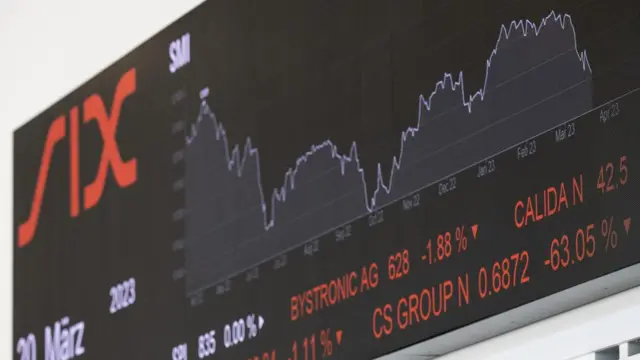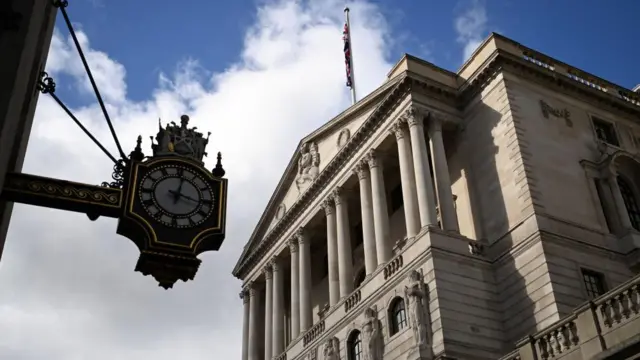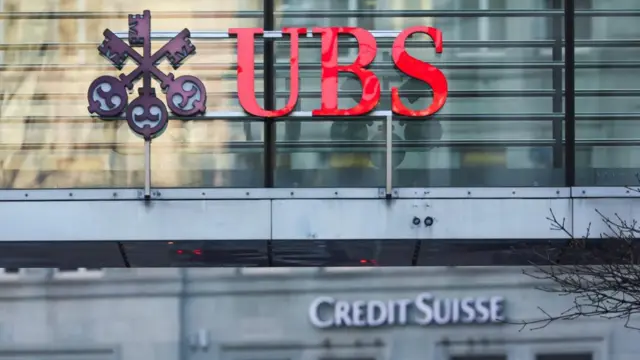Germany: Situation not comparable with 2008published at 12:14 Greenwich Mean Time 20 March 2023
A German government spokesperson has said that "Chancellor Scholz welcomes the resolve of the Swiss authorities" and said the "the situation is not comparable to 2008/2009" - in reference to the financial crisis of that period.
"The German banking system is well positioned," he added.



